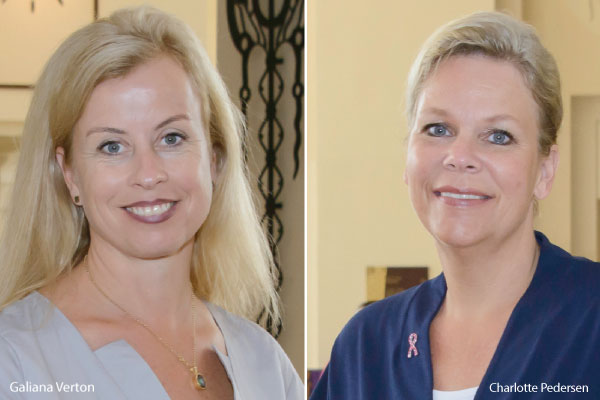WTM talks to ladies dealing with the disease and shares tips on keeping yourself safe.
THE SUPPORTER
Galiana Verton, 43, a Dutch mum of two from Zallaq.
I’ve been in Bahrain seven years and before that I was in the Czech Republic with my husband’s job. I’m a physiotherapist with a bachelor’s in physiotherapy and dermatology specialising in rehabilitation for cancer patients.
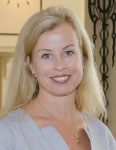 When I was in Czech I worked for an oncologist, who specialised in breast cancer patients and I built up the rehabilitation facility. At the end of five years it had its own ward and a team of physios and specialist nurses. We had a coffee lounge and an area for wigs and bras. In fact it was a full-service centre.
When I was in Czech I worked for an oncologist, who specialised in breast cancer patients and I built up the rehabilitation facility. At the end of five years it had its own ward and a team of physios and specialist nurses. We had a coffee lounge and an area for wigs and bras. In fact it was a full-service centre.
There isn’t anything like it in Bahrain and I have approached various hospitals and the Ministry of Health about setting up something similar. Nothing has happened yet but I’m hoping…
Currently, I’m the co-ordinator for the Breast Cancer Support Group. We’re a networking group for breast cancer sufferers and their families. We’re unfunded and non-profit, though we do sometimes sell things to raise funds for Think Pink Bahrain.
We can offer advice on everything from dental care (treatment can adversely affect the teeth) to hair loss. I can even help with explaining the treatments and, because of my medical background, can advise of specific massage when women are suffering lymphoedema (swelling) after surgery.
We have a Whatsapp group with around 15 members who meet and talk regularly, sharing experiences and offering advice. There’s also a Facebook page through which people can contact me. Not everyone wants to be part of the Whatsapp group but they may just want to chat or to ask questions. If I don’t know the answers, I can always find someone who does.
In some ways Bahrain is very advanced, for example the equipment that’s available. But in other ways, there is much more that could be done. One of the things I find here is that there is nowhere to get mastectomy bras, I bring them in from Holland and I can bring in a batch of 50 and they’ll be gone in a week.
As a group we work together but it would be a dream come true for lots of these women to get a proper support centre in the future.
THE SURVIVOR
Charlotte Pedersen, 46, a Danish mum of two from Riffa.
I’ve been here since 2003, I came with my husband for his job. I was diagnosed in 2009 and had all my treatment here in Bahrain and I have nothing but good to say about all the doctors and other medical professionals I’ve dealt with.
My diagnosis came as a complete shock because I hadn’t seen a lump and felt perfectly fine but I started to lose my hair and not just the normal amount that we all experience here, I had lost around 50 per cent of it!
By chance, I ran into my old gynaecologist Dr Helli, who is no longer in Bahrain. She told me to come and see her and ran some tests then she sent me off to get checked telling me there was a “small chance” that something was wrong.
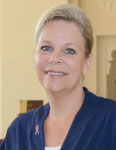 I saw a surgeon who found a lump the size of a date but it was so deep there was no way I would have found it with self examination! But he was almost convinced, from the size, that it would just be a water cyst rather than anything serious. He was wrong.
I saw a surgeon who found a lump the size of a date but it was so deep there was no way I would have found it with self examination! But he was almost convinced, from the size, that it would just be a water cyst rather than anything serious. He was wrong.
I had a full mastectomy, six cycles of chemo and then 28 sessions of radiation and I’m now clear but there have been some bumps along the way when it’s looked as if it was coming back and I am still very closely monitored.
I am fortunate to have a very strong husband and, if anything, this has brought us closer both as a couple and as a family. To be honest, once I’d got over the shock, I became really angry and that gave me a purpose, to fight.
At the time our children Anne Catrine and Frederik were six and eight and we were honest with them, we told them mummy’s breast is sick and the doctor is going to take it away and they accepted that.
I was treated at Salmaniya and both the medical staff and the other patients were so kind and welcoming. The equipment is also the most modern available so I didn’t have any burns from the radiation – it’s about two generations more advanced than I would have found in Denmark.
I’m part of the Breast Cancer Support Group and I think it’s really important as other members can tell you things you will not hear anywhere else. For example, there is a department at Salmaniya that has prosthetics, I would never have found that otherwise.
It’s also important for those of us who are here without our extended families who would offer support under other circumstances.
The one negative thing for me was that I went for a reconstruction but too soon and did not have a good result. Every woman is different but I would urge women to give themselves time to heal and let your body get strong before you do anything like that.
I also still have some lack of mobility in my arm as so much tissue was removed. It will never be the same but, hey, I’m here and that’s what matters.
BE AWARE
We all know about checking our breasts regularly but lumps are not the only sign of cancer. Early breast cancer usually doesn’t cause symptoms but, as the tumour grows, it can change how the breast looks or feels.
What to Look for
 • A lump or thickening in or near the breast or in the underarm area.
• A lump or thickening in or near the breast or in the underarm area.
• A change in the size or shape of the breast.
• Dimpling or puckering in the skin of the breast.
• A nipple turned inward into the breast
• Discharge (fluid) from the nipple, especially if it’s bloody.
• Scaly, red or swollen skin on the breast or nipple.
• The skin may have pitting so that it looks like an orange.
These symptoms do not automatically indicate breast cancer. But, if you have any of these conditions, you should get checked out without delay.
BREAST EXAM 101
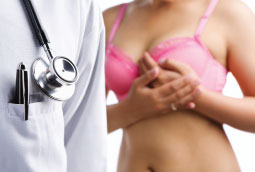 Regular self-examination is the key to early detection, but how to go about it?
Regular self-examination is the key to early detection, but how to go about it?
Step 1:
Begin by looking at your breasts in the mirror with your shoulders straight and your arms on your hips. Look for any of the signs included in the Be Aware section.
Step 2:
Now, raise your arms and look for the same changes.
Step 3:
Next, feel your breasts while lying down, using your right hand to feel your left breast and then your left hand to feel your right breast. Use a firm, smooth touch with the first few finger pads of your hand, keeping the fingers flat and together and working in small circles.
Step 4:
Cover the entire breast from top to bottom, side to side — from your collarbone to the top of your abdomen, and from your armpit to your cleavage.
Follow a pattern to be sure that you cover the whole breast. You can move your fingers up and down vertically, in rows, as if you were mowing a lawn. Be sure to feel all the tissue from the front to the back of your breasts: for the skin and tissue just beneath, use light pressure; use medium pressure for tissue in the middle of your breasts; use firm pressure for the deep tissue in the back.
When you’ve reached the deep tissue, you should be able to feel down to your ribcage.
Step 5:
Finally, feel your breasts while you are standing or sitting. Many women find this easiest when their skin is wet and slippery, so they do this step in the shower. Cover your entire breast, using the same hand movements described in step 3.
If you find anything suspicious, don’t wait, get checked out by a medical professional as soon as possible.
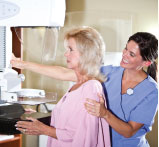 Breast Cancer Screening in Bahrain
Breast Cancer Screening in Bahrain
For more than 20 years, the Bahrain Cancer Society has educated women in Bahrain about the importance of
breast self-examination and the significance of early breast disease detection by mammogram.
In August 2005, the society, in collaboration with the Ministry of Health, launched the National Campaign for the Early Detection of Breast Disease with the objectives of increasing early detection and reducing mortality by making screening and education more widely available.
Under this initiative screening is absolutely free of charge and is held six days a week at the following
medical centres:
• Hamad Kanoo Medical Center (Isa Town)
• National Bank of Bahrain Medical Center (Arad)
• Naim Medical Center (Manama)
• Al Aali Medical Center (Al Aali)
• Mohamad Jassim Kanoo Medical Center (Hamad Town)
To be eligible women must be a citizen or resident of the Kingdom, be aged 40-plus, should not have had surgery or treatment for breast cancer and should not have had a mammogram in the past 12 months.
The ministry also provides a weekly breast assessment clinic at the Salmaniya Medical Complex run by a team of specialised doctors to review reports and provide the appropriate management for the positive cases in due course.
Several of the private healthcare providers also offer comprehensive Well Woman packages which include breast exams and pap smears. These include Bahrain Specialist Hospital, KIMS Medical Centre, American Mission Hospital and King Hamad University Hospital.

























